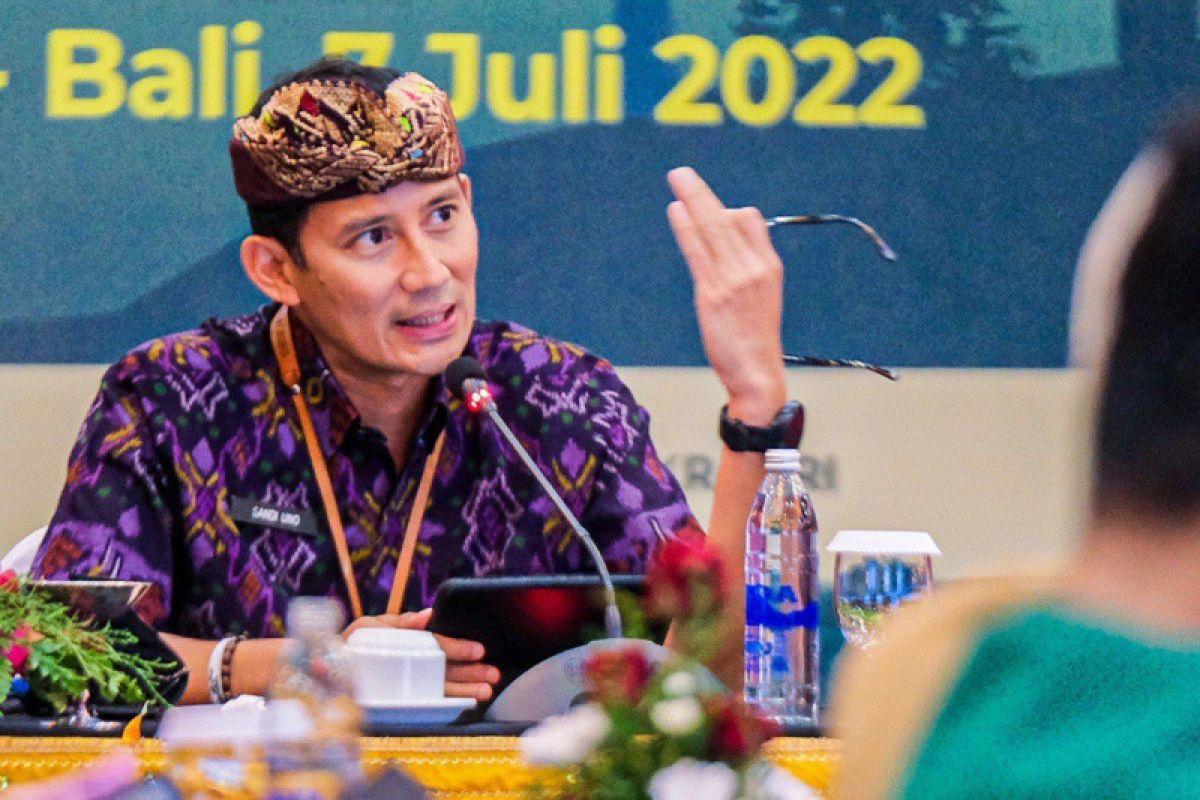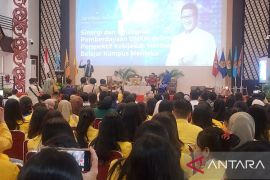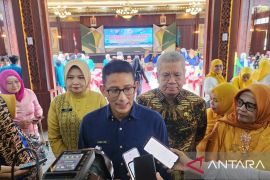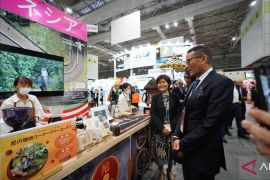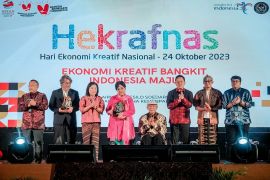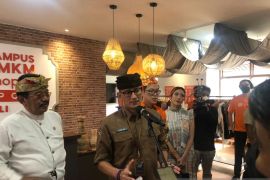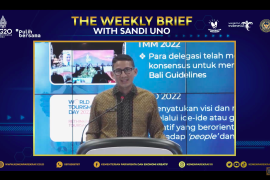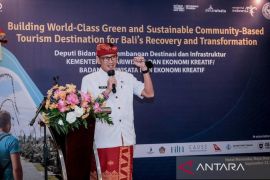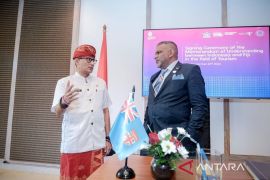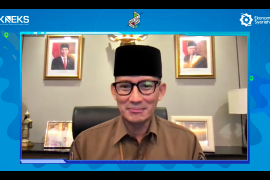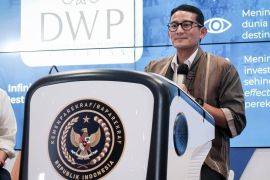We give our all to implement sustainable tourism.Jakarta (ANTARA) - Proper food waste management can solve the community's economic problems amid soaring prices of food ingredients and spices recently, Tourism and Creative Economy Minister Sandiaga Uno stated.
"It is very ironic that (currently), the price of chili and food ingredients is expensive, but we are wasting it. Hence, there must be a change in behavior," he remarked while attending a Focus Group Discussion (FGD) on Food Waste Management in the Tourism Industry in Bali, as quoted from a statement here on Friday.
In addition to Saudi Arabia and the United States, Indonesia is one of the largest food waste producers, according to the report of the Economist Intelligence Unit.
The finding aligns with a study conducted by the National Development Planning (PPN) Ministry along with several institutions concerning the Food Loss and Waste (FLW) in Indonesia in 2021.
Related news: Ministry develops tourism villages as flagship program
The study recorded that food waste produced by Indonesia during the 2000-2019 period had reached about 23-48 million tons per year.
“The huge amount of wasted food certainly impacts several sectors, such as the economy, social, and environment," the minister stated.
He noted that due to the food waste, Indonesia had experienced economic losses to the tune of at least Rp213 trillion (US$14.14 billion) to Rp551 trillion (US$36.58 billion) annually or equivalent to four to five percent of the country’s gross domestic product (GDP).
Hence, the FGD is expected to provide solutions and encourage concrete attempts to handle the food waste in the tourism industry to realize sustainable tourism.
The Tourism and Creative Economy Ministry is committed to actively participating in addressing various environmental and climate change issues, for instance, by conducting the FGD on food waste.
Related news: Ministry seeks UNESCO 'creative city' tag for Surakarta
Furthermore, as the chair of the 2022 G20 presidency, Indonesia aims to be a model in tackling climate change and conducting environmental management through various concrete and sustainable actions.
"We give our all to implement sustainable tourism," Uno stated.
He also expected all stakeholders in the tourism industry -- including the hotel, restaurant and café owners and managers, as well as the government, academics, media, and non-governmental organizations (NGOs) -- will assist in handling food waste in Indonesia.
Related news: Striving to revive Indonesia's tourism sector
Related news: Minister Uno visits Nagari Tuo Pariangan
Translator: Baqir Alatas, Uyu Liman
Editor: Fardah Assegaf
Copyright © ANTARA 2022
